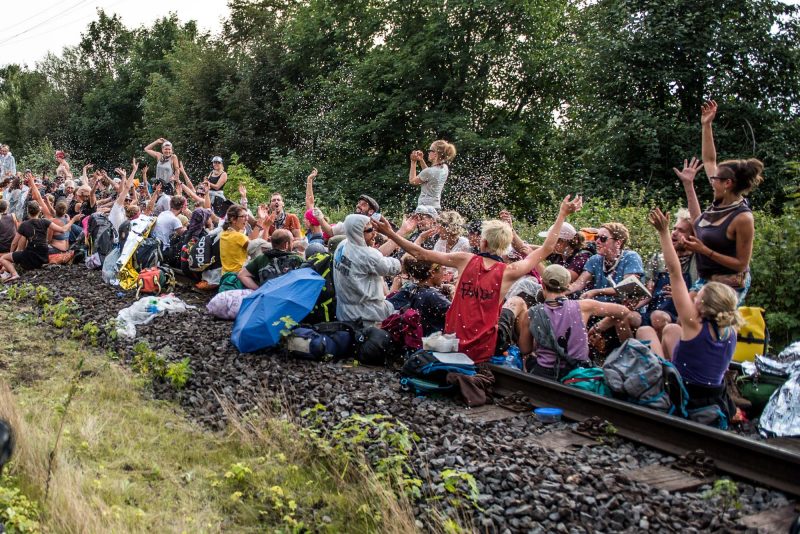6000 people against lignite mining
Today the climate camp near Erkelenz is taking down its tents. In the last week, it was the main base for a series of powerful and diverse protests against lignite mining in the Rhineland Coalfields. On Friday and Saturday, thousands of „Ende Gelände“ activists blocked the train tracks which supply Germany’ s dirtiest coal-fired power … Continued

Today the climate camp near Erkelenz is taking down its tents. In the last week, it was the main base for a series of powerful and diverse protests against lignite mining in the Rhineland Coalfields.
On Friday and Saturday, thousands of „Ende Gelände“ activists blocked the train tracks which supply Germany’ s dirtiest coal-fired power plant Neurath with coal. On Friday the tracks were occupied for nine hours. On Saturday the blockades were held for six hours. RWE had to reduce the capacities of the power plant for 20 hours. One group of activists also managed to enter the open-cast coal mine Garzweiler. The different „fingers“ of the mass action highlighted various aspects of the climate justice issue, such as workers’ struggles, mobility, agriculture and feminism, seeking to unite movements of the left.
This year, the protests were more decentralized and diverse. Ende Gelände was part of general action days. A human chain of 3000 people drew a „Red Line“ against lignite mining the edge of the Hambach forest. Countless smaller groups occupied train tracks and road accesses to power-plant Neurath, or sat singing on a bucket-wheel excavator in the open-cast mine Inden. Three climate camps hosted workshops, public debates, action support groups, emphasizing its outreach to the neighbouring villages and dialogue with worker’s unions. Altogether, 6000 people took part in the protests, demanding climate justice and an immediate coal phase-out.




